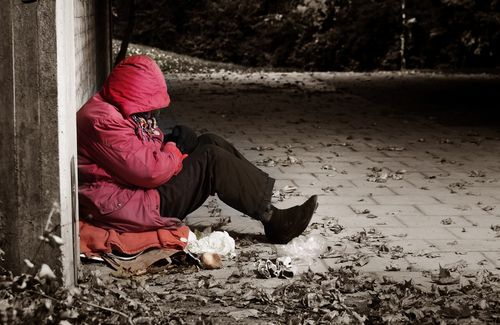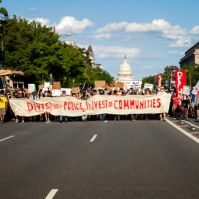 Every city has unique issues that require civic involvement. Many people of faith want to help those who are in need, but they may not know where to start. If your city has a large homeless population, the challenges facing this particular group in your community may seem too big for you to solve. Fortunately, you do not have to tackle homelessness all on your own. There are several ways to address the obstacles that people who experience homelessness encounter, and they all start with getting others involved.
Every city has unique issues that require civic involvement. Many people of faith want to help those who are in need, but they may not know where to start. If your city has a large homeless population, the challenges facing this particular group in your community may seem too big for you to solve. Fortunately, you do not have to tackle homelessness all on your own. There are several ways to address the obstacles that people who experience homelessness encounter, and they all start with getting others involved.
Get To Know Them
There is not a one-size-fits-all approach to advocacy for the homeless. The problems facing one region may be very different from another. There are many reasons that people end up living on the streets:
- Poverty
- Unemployment
- Untreated mental illness
- Addiction
- Decline in public assistance
- Rising housing costs
- Domestic abuse
Unless you are willing to learn the specific problems that tend to lead to homelessness in your city, your efforts to help are unlikely to be effective. To get the information you need, go straight to the source. Instead of just handing money to someone and then going on your way, stop and have a conversation with him or her. Rather than simply standing behind the counter at the soup kitchen, sit down and share a meal with those you serve. Soon, you will see patterns emerge in your conversations that give you a better idea of the specific challenges you can address in your city.
Assist With Advocacy
Chances are good that there are already people advocating for the unhoused population in your area. The National Coalition for the Homeless lists several directories that can help you tap into resources already in play. You may also consider contacting local shelters and food banks to find ways to support the groups with which they partner.
As with any type of advocacy, the best approach is to involve those whom you seek to support. It's one thing for legislators to hear from observers who report on what they see; it's quite another to hear about the effects of policies and other decisions from people experiencing homelessness themselves. Supply paper, envelopes, pens and stamps to your friends at the soup kitchen, and encourage them to write to state and local representatives. Have a calling party where they can share phones to reach out to city leaders. Create pamphlets with suggested action items they can hand out on the street. Make sure that their voices don't get lost in the fight for their protection.
Follow Up With Local Leaders
The problems that lead to homelessness affect much more of the population than those with no place to live. An unstable housing market, a lack of reliable mental health support and low funding for addiction treatment are issues that leave a lot of people in some kind of jeopardy. For example, while the number of veterans experiencing homelessness has decreased overall in recent years, they still make up about 11% of the unhoused population in the country. Despite the number of resources that should be available to those who have served in the armed forces, it's clear there are still many who don't get the help they need.
Citizens can mobilize to hold leaders accountable. Attend public meetings and speak out, particularly when the local budget is on the agenda. Make appointments to meet with specific officials who seem amenable to getting involved to help create a plan of action. Reinforce the efforts of other groups in the community who engage in advocacy.
It takes a whole community to combat homelessness. By working together, your church, local politicians and advocacy groups can help alleviate the challenges that those without a place to call home face.



